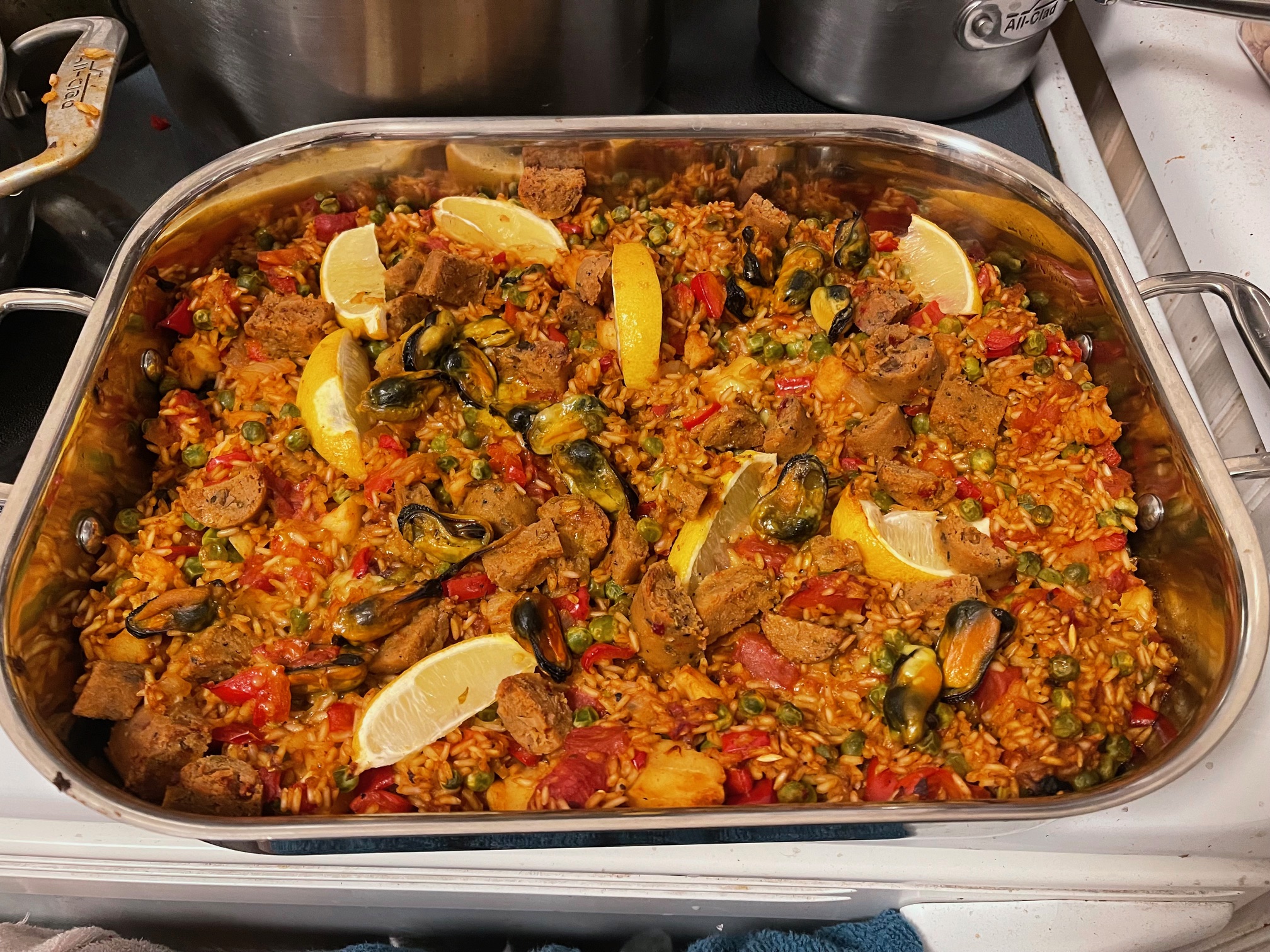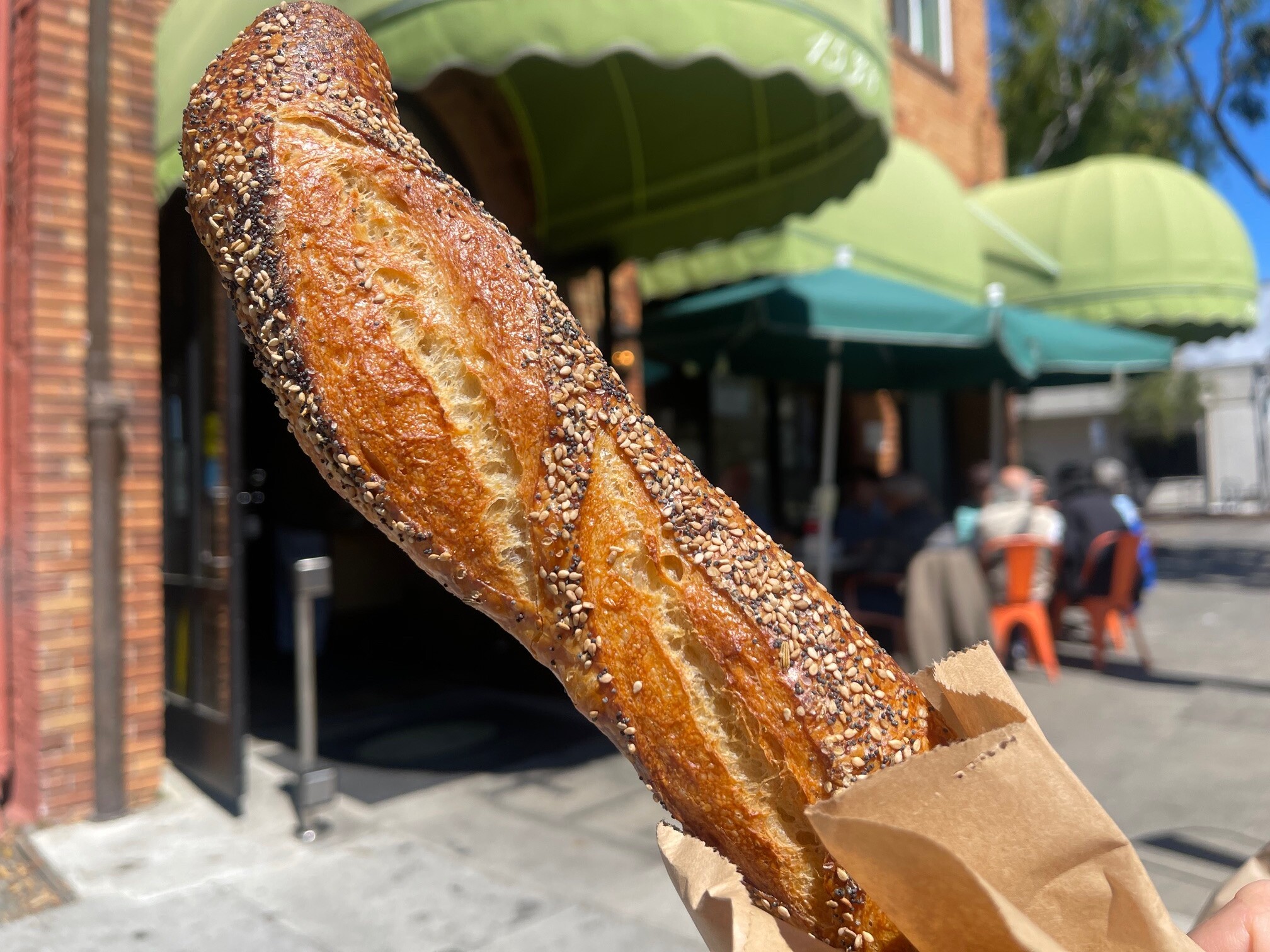By Nancy Clark MS RD CSSD — Athletes create many reasons for limiting their intake of seemingly “evil” carbohydrates: I don’t like sandwiches … Pasta is so “heavy” … I’m staying away from gluten … I avoid any foods with added sugar … I prefer to eat two veggies at dinner instead of a veggie and a carby food. And, most often I hear: Bread is fattening!!! Anti-carb sentiment has pervaded my entire career as a sports nutritionist. While some fads have come and gone, the “carbs are bad” fad remains ingrained in the brains of even elite athletes. I am (again) encouraging you to reconsider your stance.

- Despite popular belief, carbohydrates are not inherently fattening. Excess calories of any kind are fattening. Excess calories of bread, bagels, and pasta are actually less fattening than excess calories of cheese, butter, and olive oil. That’s because converting excess calories of carbs into body fat requires more energy than does converting excess dietary fat into body fat. That means, if you want to be gluttonous yet suffer the least weight gain, indulge in fat-free frozen yogurt instead of gourmet ice cream!
- To allay any confusion, let’s clarify what carbs actually are. Carbohydrates include both sugars and starches. Carbs are in fruits, vegetables, grains, and milk (lactose). Sugars and starches all digest into the simple sugar glucose. Glucose travels in your blood and, with the help of insulin, gets taken into muscles and stored as glycogen for fuel. Athletes who restrict carbs commonly complain about “dead legs.”
- Sugars and starches are biochemically related. For example, an unripe fruit, such as a banana, is starchy. As it ripens, it becomes sweeter; the starch converts into sugar. Similarly, vegetables, such as peas, are sweet when young. Their sugar converts into starch as they mature.
- All carbs—both sugars and starches—are excellent sources of fuel. Both “carby” bagels and sugary candy end up as glucose in your blood and feed your muscles as well as your brain. Whether you are a marathon runner or a weight lifter, a carb-rich sports diet (with adequate protein) can enhance your performance.

- Quality carbs, such as whole grains, fruits, and veggies, offer abundant vitamins, minerals (electrolytes), and other health-promoting nutrients. Refined sugar, however, offers little nutritional value. Yet, dietary guidelines say 10% of daily calories can come from added sugar. That’s at least 50 grams of sugar for most athletes and allows for some “fun foods.”
- Sugar-avoiders please note: the 3 grams of added sugar in 2 tablespoons of peanut butter will not negate peanut butter’s health-promoting fiber, protein, and anti-inflammatory fats. Nor will the sugar in chocolate milk diminish its value as a helpful recovery fluid after a hard workout. Please look at the vitamins, minerals and protein that come along with the added sugar, not just the sugar itself.
- Sports drinks, gels, and sports gummies are little more than refined sugar. That’s not bad; it’s exactly what the body wants during extended hard exercise. Even though refined sugar adds “empty calories” to a sports diet, athletes need not eat a perfectly sugar-free diet to have an excellent diet. There’s a time and a place for sweets.
- The messages that carbs are inflammatory, fattening, and bad for you is targeted at sedentary people who consume excessive calories, often from highly processed foods. For those unfit (often unhealthy) people, excess carbohydrate can contribute to elevated blood glucose, which triggers the body to secrete extra insulin. Consistently high insulin can be inflammatory and lead to nasty health issues. Yet, most athletes can handle carbs with far less insulin than the average American—and without carbs causing “sugar crashes” or weight gain.
- The most common reason for “sugar crashes” (hypoglycemia) among athletes relates to running out of fuel. The shakiness and sweats are because the athlete did not eat enough carbs to maintain normal blood glucose levels and the brain has to demand a quick fix—sugar! One marathoner credited the sugary gel he took at Mile 16 to cause him to “crash.” More likely, he needed more just one gel to meet his energy needs.
- For athletic people who routinely train hard 4 to 6 days a week, carbs should be the foundation of each meal. The International Olympic Committee’s recommendations for a performance diet include far more carbs than many athletes consume via fruit, salads, and cooked veggies. Baseline targets for a 150-pound athlete are:
- 375 g carb/day for ~1 hour of moderate exercise
- 450 g carb/day for ~1-3 hours of endurance exercise
- 525 g carb/day for >4-5 hours of extreme exercise
This comes to about 100 to 150 grams carb/meal, which equates to about 400 to 600 calories of grains, fruits, and/or veggies per meal. This menu exemplifies what 450 grams of carb “looks like”:
| TIME | MEAL | CARB (g) | SAMPLE MEAL |
| 06:30 AM | Pre-exercise Snack | 40 | Clif Bar |
| –1.5-hour bike ride– | |||
| 09:30 AM | Post-exercise Breakfast | 110 | 1 cup dry oats cooked in 1 cup milk, 1 large (9”) banana, drizzle honey |
| 11:30 AM | Early Lunch | 125 | Sandwich, fruit yogurt, 4 fig newtons |
| 03:30 PM | Hearty Snack | 45 | Dried fruit (in trail mix), Latte |
| 07:30 PM | Dinner | 130 | Chicken, 2 cups (brown) rice, 1 c cooked carrots, 8 Hershey Kisses |
If your daily menu lacks starchy foods, experiment with adding grains to each meal and snack. You just might discover how much better you can feel and perform!








Thank you for your sanity. This is science. And it works.
I don’t understand how chocolate milk is still considered a good recovery product!?? As far as I know peanut butter is not anti-inflammatory as well, maybe walnut butter would be a better choice.
Thank you for the comments and recommendations. It would be nice if you could add a bit more nuance with regard to age affects. As a young racer, 50 years ago, I ate a lot of carbs and it was fine. As I reached my mid 50’s and now mid 60’s I’m needing more protein/fat and less carb. But after so many years of being normal consuming a medium to high amount of carb the necessary diet changes to maintain weight normalcy is less satisfying. FWIW, there also are genetic effects that also cause health changes and speed/performance reductions. As best as I can tell there is little that can be done to reduce those negative changes.
Comments are closed.